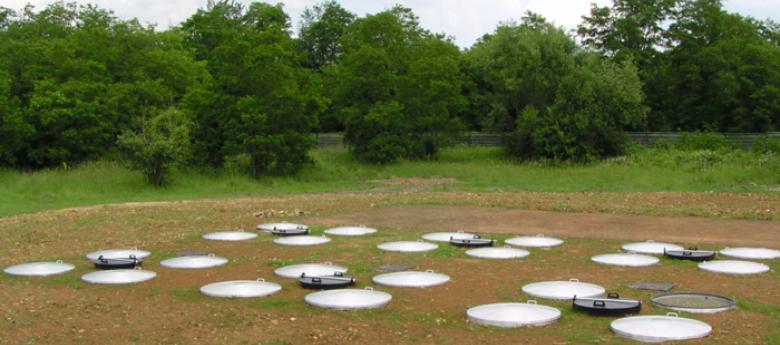The Soil and Environment Laboratory (LSE) is one of the pioneer laboratories dealing with strongly anthropized soil, a consequence of the expansion of urban, industrial and transport infrastructures as well as the intensification of agriculture, and decontaminating this soil via phytoremediation, which consists in cultivating plants that accumulate the pollutants in the parts that are harvested or that favor their biodegradation.
A team of 8 teacher-researchers, 6 researchers and engineers, 8 technicians and administrative staff, 11 doctorate and post-doctorate researchers are working on this problem on two fronts:
- Pedogenesis of strongly anthropized soil
The objective is to understand how severely anthropized soil is formed and to model its future evolution. The work carried out is most particularly focused on Technosols, which constitute a new and not very well known group, but one that could potentially support plant production, for food or non-food use (market gardening, peri-urban gardening, gardening, or revegetation of damaged sites, for example). - Phytoremediation of contaminated soil
The objective is to develop and optimize phytoremediation plants. By using specific plants, pollutants will either be extracted (phytoextraction) or their degradation will be facilitated (phytodegradation). Thus, the tools for assessing the bioavailability of pollutants and for projecting their transfer to the plants must be further developed, as well as the models for design purposes and the pilot runs of the plants on contaminated soil with trace elements or organic molecules.
The Soil and Environment Laboratory has at its disposition:
- 2 experimental sites:
- in peri-urban agricultural area: experimental domain La Bouzule, which is a reference center for food safety and traceability,
- in an industrial area: a brownfield in Homécourt, France, experimental site for GISFI - A common service for friable material, unit of the Federation of Water-Soil-Earth Research (la Fédération de Recherche Eau-Sol-Terre) based in the Laboratory, whose mission is to facilitate the preparation and characterization of friable material such as soil, sediment, loose rock, etc.
- Controlled conditions: soil columns, hydroponic crops, crops in plant vases, rhizotrons, basins and lysimeter columns, etc.
- Equipment for measuring and analysis: workstation for evaporation under nitrogen flow, sample oxidizer, microwave mineralizer, florescence stereomicroscope, meteorological workstation, beta and gama radiation detectors, ionic chromatography, etc.
The Soil and Environment Laboratory is involved in:
- The Federation of Water Soil Land Research (La Fédération de Recherche Eau Sol Terre) (FR-EST)
- The Observatory of Sciences of the Universe “Land Environment Observatory of Lorraine” (L’observatoire des Sciences de l’Univers « Observatoire Terre Environnement de Lorraine) (OTELo),
- Laboratory of Excellence (Le Laboratoire d’Excellence) « Ressources 21 »
- L’Institut Carnot ICEEL, Environment Energy Lorraine (Environnement Énergie Lorraine).

